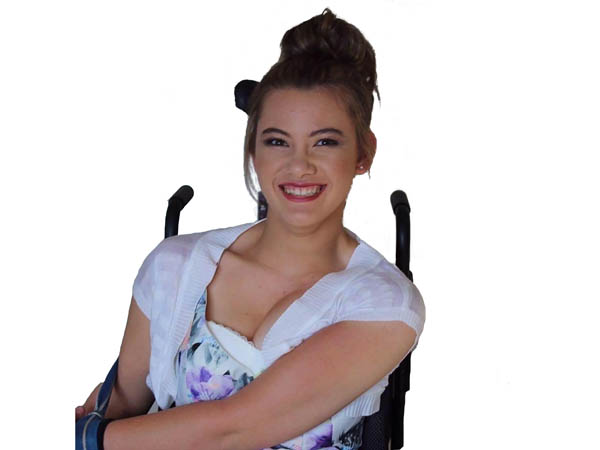
Alicia Kapa
Alicia’s start in life was tough. She wasn’t breathing when she was born, and with no oxygen going to her brain it caused damage to her muscles, causing a condition widely known as muscular dystrophy where she has no control over her muscles and spends her life in a wheelchair.
But as Alicia is quick to point out there is nothing wrong with her mind.
And to prove that, she is in the final stages of completing a Bachelor of Arts majoring in Criminology and Māori Studies while working on data analysis as an intern at Yellow.
Alicia is of Ngapuhi descent, and was born in West Auckland and grew up in the East in Botany.
She is the youngest of three sisters. Alicia says she had a very lucky upbringing with parents that valued creating great experiences with their family. She has travelled a lot, to places including the United States and Australia; her favourite destination is Fiji.
Alicia has never let life in a wheelchair and having quadriplegia hold her back. She says even though people say she is inspiring, she just gets on with living her life the same as any other 21-year-old does. Alicia says she has an adventurous spirit and enjoys proving people wrong. Last year on a road trip around the South Island she went skydiving, and when asked if it was scary she says:
“It was ok. The instructor sang the song FreeFalling to take my mind off the fact I was about to fall out of a plane!”
Alicia has travelled around the world on thrill-seeking adventures including bungee jumping and taking a cruise around the US with her favourite band, Paramore.
Alicia says she opted to study Criminology after meeting a relative when she was at school and discovered she has a passion for helping young people who have been caught up in the justice system. She would like to have a career with the Department of Corrections, working on youth justice.
Alicia says the toughest time for her was her last year at school making the grades to get into Uni. She says it takes her a lot of energy to study because it takes her a long time to do things.
She it is challenging for her sometimes when people meet her and think that because of her physical condition with her muscles that there is something wrong with her mind and that surprises her. Most of the time if this happens she just lets it go thinking that she will never see the person again.
Alicia describes herself as very strong, and that if things get tough she just has a quick cry and then moves on. She says she is lucky to have a close friend who is able to either sympathise with her or tell her to get over it!
Alicia first heard about TupuToa through friends at university. She says the support and understanding of TupuToa has been really great, and she is hopeful TupuToa can assist her to find a role with the Department of Corrections.
Alicia says having a disability or being of Māori or Pacific descent can be similar in that you get judged a lot in a negative way, and that effects everything including the work you get and the way you are treated.
“ It is important to show everyone that we are just like everyone else, with potential to do well and succeed.”





